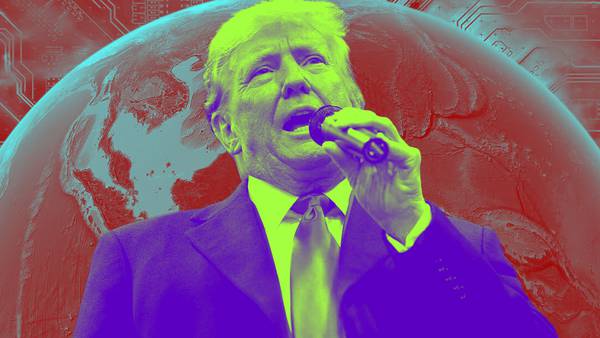UK moves to digital pound design phase amid ‘unprecedented’ 50,000-strong privacy debate – DL News

- The UK Treasury and Bank of England reported the results from 50,000 respondents to their proposal for a digital pound.
- Crypto puritans have accused central bank digital currencies of infringing on people’s privacy.
- The digital pound would still need to be legislated before it can come to life.
People worry their privacy would be violated if the UK would launch a digital pound.
That’s one of the key takeaways of a new report from the His Majesty’s Treasury and the Bank of England.
Published on Thursday, the report is based on the responses of 50,000 companies and individuals to the UK’s government’s proposal for a central bank digital currency.
“Many respondents expressed concerns that a digital pound could encroach on their rights,” the report said, pledging to quell these concerns by saying that “protections would be put in place to guarantee the public’s rights and privacy.”
Stay ahead of the game with our weekly newsletters
The report added: “This legislation would guarantee both users’ privacy and that neither the Bank of England nor the Government would control how you spend your money.”
The report comes as CBDCs have become a hot button topic on both sides of the Atlantic, with the fears for people’s privacy at the top of the debate.
In the EU, the digital euro has seen backlash from policymakers and privacy advocates alike, forcing EU officials to defend the project from concerns it is a “Big Brother” surveillance project and “a conspiracy.”
Stateside, Donald Trump, the defenestrated president who is now vying for a second stab at the Oval Office, has put the spotlight on CBDCs by calling the prospect of a digital dollar “a dangerous threat to freedom.”
Join the community to get our latest stories and updates
‘General distrust of government’
Supporters of a digital pound have hit back against the fears.
“This is less about digital money, and more about general distrust of government,” Jannah Patchay, executive director and policy lead for the Digital Pound Foundation, told DL News.
Even so, the interest in the consultation, which was first published in February 2023 was “unprecedented” with its 50,000 responses, Patchay said, especially compared to the European Central Bank, which counted 8,221 respondents to its digital euro consultation in January 2021.
‘Reassure the public’
The digital pound has been in the works since at least 2021, when then-finance minister Rishi Sunak urged the government to back the project, referring to it as “Britcoin.”
In the years since, Sunak has become prime minister and the government has taken steps to move forward with the CBDC, the new report being the latest step in the long process.
Even so, there is still a long way to go before it could become a reality.
Firstly, the government must carry out another consultation to write legislation.
Then, a bill would need to be debated by both houses of parliament to set the legal foundation for a CBDC.
In the meantime, the government and central bank are moving forward into what they call the design phase of the digital pound.
This will consist of a proof-of-concept and more “engagement with the general public, businesses and wider stakeholders,” according to the report.
They will also look to “reassure the public” they would develop safeguards against programmability. That means the state would not have power to control how people spend their money.
“It is going to be very difficult to change the narrative regards the fear of privacy for central bank digital currencies based on current narratives that are playing out in China and what’s coming from the US Republican party,” Ian Taylor, board advisor for trade association CryptoUK and Head of Crypto and Digital Assets at KPMG’s arm in the UK, told DL News.
In China, the state-issued digital yuan is in live trial, and has been a red flag for Western privacy advocates for surveillance concerns.
The digital pound has seen harsh criticism from leaders in the crypto industry, who view it as an unnecessary step preventing the UK from realising Sunak’s pledge to transform the country into a digital asset hotbed.
“CBDCs are at best pointless and at worst pernicious,” Oliver Linch CEO and general counsel of crypto exchange, Bittrex Global, said in a statement shared with DL News.
Have a hot tip about CBDCs? Contact the author at inbar@dlnews.com.






